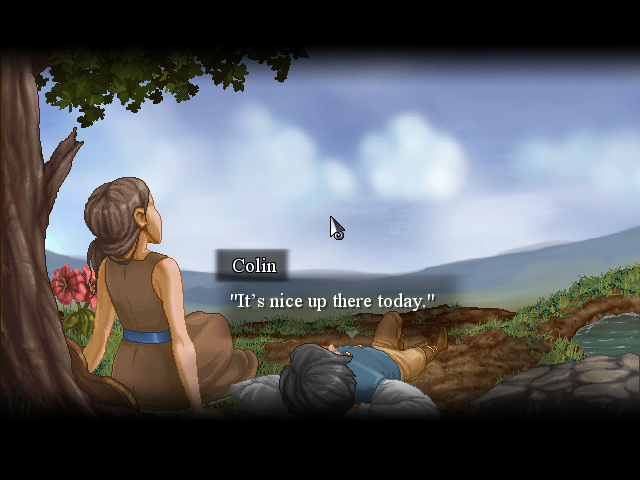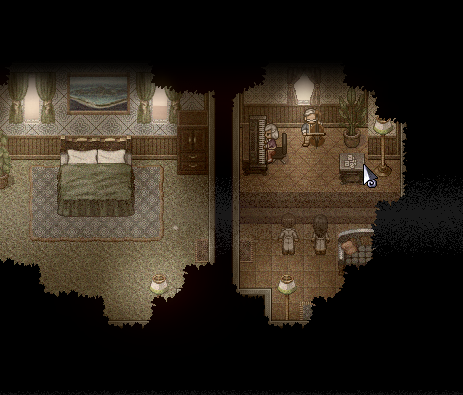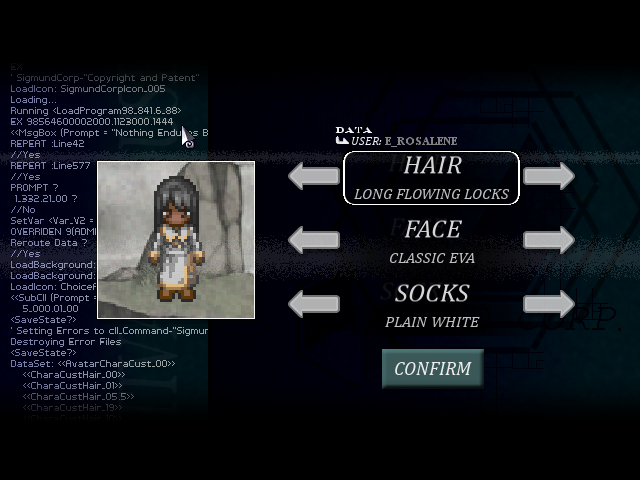Freebird Games’ Finding Paradise doesn’t care what you want. It doesn’t care about genre expectations or consistency in game mechanics. The game has a story to tell, and you’re either along for the ride or you aren’t. Fortunately, the tale of Finding Paradise is a beautiful, evocative work well-worth the six hours it takes to tell.

The Imminent Death of Colin Reeds
Finding Paradise follows Dr. Eva Rosalene and her co-worker, Dr. Neil Watts, as they dive into the memories of Colin Reeds, a retired pilot on his deathbed. Their job, and the task set forth to players, is to understand Reeds’ prominent memories and regrets, then tweak his memories to create the illusion of a more fulfilling life within the man’s head. This mission, however, becomes complicated by the secrets of Reeds’ past, as well as his vague wishes about what memory changes would provide him with a greater sense of fulfillment.
The storytelling in Finding Paradise is its marque feature around which everything else is built. It’s top notch and full of surprises. Writer Kan Gao has an almost magical ability to convey tone throughout narrative. The game seamlessly shifts from funny, to sad, to spooky—sometimes in rapid succession—yet manages to consistently evoke Reeds’ sense of vague longing in the twilight moments of his life.
Gao’s musical prowess is on full display in Finding Paradise. His composition plays a large part in the game, both because it’s thematically relevant to the story and because the soundtrack is just really very powerful. Throughout my playtime, I stopped several times just to listen to Reed play his cello alongside his wife, Sofia, a concert pianist. This might be the first time I’ve ever listened to a game’s soundtrack outside of the game, itself.

“What Even Is This?”-Dr. Neil Watts
My biggest complaint with Finding Paradise is that none of its (very few) game mechanics serve much purpose. For instance, to move to a new memory of Reeds’ life, players must solve a puzzle in a very simple mini-game that involves moving pieces around a board, attempting to match three or more in a line.
The puzzles are incredibly easy throughout the entirety of the game. The most challenging one took me less than 45 seconds, most of which was spent accidentally matching the wrong pieces.
The player is given the ability to switch between Rosalene and Watts, but this really only applies once and I can’t honestly tell you why it matters. The player is also given a heart monitor for Reeds to keep an eye on his health throughout the game, though there is no occasion in which this tool is actually useful.

Character Modification: Another example of a fun, but ultimately pointless, mechanic in Finding Paradise.
Finding Paradise also makes some brief forays into other genres. These moments are admittedly quirky and fun, and I’m glad I got to play them, but they also emphasized how unnecessary they are to the story being told. The game’s mechanics feel like a strange attempt to gamify an experience that honestly would have been fine without any of them. They are benign at best, not interfering with the narrative but not enhancing anything, either.
Gao is not afraid to draw attention to this strange relationship between game and story, though. Finding Paradise has plenty of moments in which the characters brush up against the fourth wall, acknowledging the limitations and context of the games’ mechanics without necessarily being outright aware of them. This comes across as Gao saying, “I know it’s weird, but it’s how I want to tell the story so you’ll just have to deal.” I, for one, find that quite charming.

Pros
- Poignant and emotive storytelling
- Really, the music is just incredible
- Full of surprising moments
Cons
- The varied mechanics can be fun, but their existence doesn’t add anything to the experience
- None of the tools provided to the player seem to mean anything
- If you’re not into the story, there isn’t anything here for you
Conclusion
Finding Paradise provides a beautiful and unique storytelling experience that is absolutely worth the time. The mechanics are not cohesive to the experience. Some of them are fun in their own right and none of them are disruptive enough to negatively impact the story. Really, though, the music is so good. That cello will break your heart.




Good review! I loved To The Moon and was really looking forward to Finding Paradise.